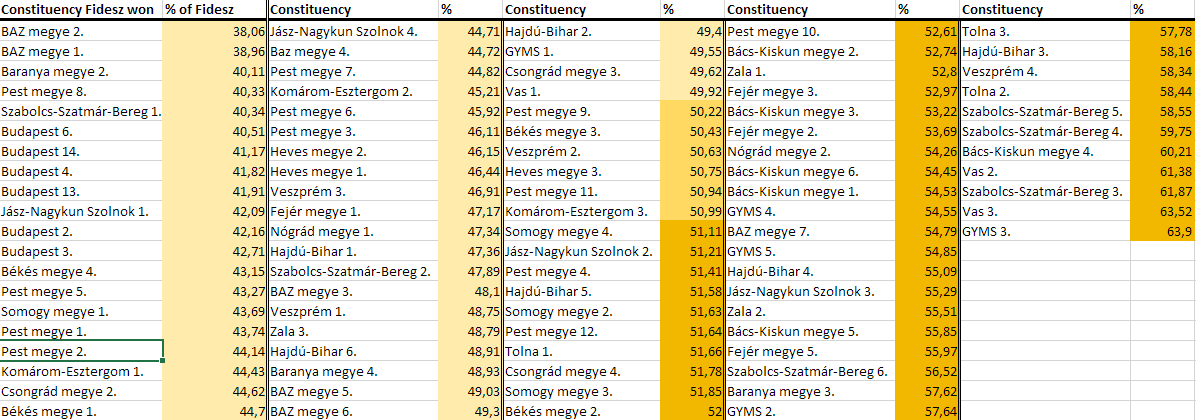Opposition parties to unite against Orbán in 2022
- Stay updated on the latest news from Hungary by signing up for the free InsightHungary newsletter:
Hungary's six largest opposition parties announced on Thursday that they have begun preparations for a joint effort to unseat the Fidesz-KDNP governing coalition in 2022 elections.
"Today, hearing the will of the voters, the opposition parties began official negotiations...toward preparing for the 2022 parliamentary elections," the parties wrote in a joint statement.
Leaders of the Democratic Coalition (DK), the Hungarian Socialist Party (MSZP), Jobbik, Momentum, Párbeszéd (Dialogue), and Politics Can Be Different (LMP) agreed to run a single joint candidate in each of Hungary's 106 voting districts to face off against candidates of the governing parties.
They also announced they would "create a common platform in the interests of the country", and would use negotiations and primaries to select which individual candidates to run in each district.
In the case of an opposition victory, they wrote, they would jointly govern the country based on the common platform and principles agreed upon by the parties.
The Liberálisok party and the Everyone's Hungary Movement (Mindenki Magyarországa Mozgalom), led by Hódmezővásárhely mayor Péter Márki-Zay, did not participate in the cross-party negotiations. As we reported on Thursday, Márki-Zay predicted a "two-thirds majority...in the new Parliament" if the opposition ran a single candidate against Fidesz in each district.
If the agreement to run joint candidates can hold until 2022, it would be the first time opposition parties have ever done so in a parliamentary election: in 2018, the parties fielded their own candidates in all 106 voting districts.
Based on election statistics compiled by former Index journalist Zoltán Kovács, of the 91 districts Fidesz took in 2018, it received less than 50 percent of the vote in 44 of them. A single opposition candidate in those districts (and perhaps others) could potentially have swung the results away from Fidesz.
Since Fidesz's resounding victory in the 2018 parliamentary elections, the opposition has had several chances to experiment with joining forces against the governing party. In October 2019 municipal elections, the strategy delivered major opposition victories in Budapest and half of the country's largest cities.
At a by-election in Dunaújváros in February of this year, the entire opposition got behind Jobbik candidate Gergely Kálló, who won the election with a solid majority. It was the first time the opposition had run a single joint candidate for a parliamentary seat.
The parties will soon have their second chance to try their coordination strategy on the national stage. They announced on Thursday that they would jointly support László Bíró (Jobbik) to face Fidesz candidate Zsófia Koncz in a by-election in the 6th electoral district of Borsod-Abaúj-Zemplén county. A Fidesz defeat in the by-election would result in the party losing its two-thirds majority in the Hungarian Parliament.


